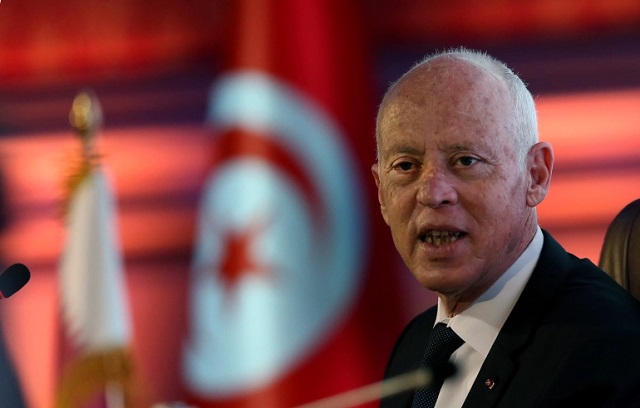
Tunis, Tunisia | Xinhua | Tunisian President Kais Saied has validated the draft of a new constitution and unveiled it to the public ahead of the constitutional referendum scheduled for July 25.
The draft constitution, published late Thursday in the official bi-weekly gazette Journal of the Republic of Tunisia, comprises 10 chapters and 142 articles, with the most notable Article 1 stipulating that Tunisia is a republic with a presidential system.
The draft details that the president exercises executive power with the assistance of the government, the head of which is appointed by the president and will not be presented to the parliament for a vote of confidence.
It meets expectations that Tunisia will abandon the mixed presidential-parliamentary system under the country’s 2014 constitution, as Saied has vowed to reshape the political system on many occasions.
Also as expected, the draft constitution sets a new parliamentary chamber for “regions and districts,” echoing the president’s long-held vision for a decentralized democratic model that he described as a “democracy of individuals.”
It also limits the presidency to a maximum of two terms, but the term can be extended when the president decides there is an imminent danger to the country.
The last chapter stipulates that the exceptional measures, announced by Saied and approved in September 2021, will remain in force until the next parliamentary elections due in December 2022.
The new constitution keeps most parts of the sections in the 2014 version that enumerated rights and liberties, including freedom of speech, the right to organize in unions, and the right to peaceful gatherings.
However, it forbids strikes held by certain sectors, such as security, army, and court.
Tunisia has been trapped in an economic crisis, with declining public services, an increasing unemployment rate, and chronic political paralysis. On July 25, 2021, the president sacked the prime minister and suspended the parliament in response to a series of mass anti-government protests amid the economic collapse fuelled by the COVID-19 pandemic.
After that, he appointed a new government and dissolved the parliament as well as the supreme judicial council.
Last December, Saied declared that a constitutional referendum will be held on July 25, the country’s Republic Day, for a “new republic.”
However, the planned referendum has met with mixed reactions. Some Tunisians welcomed it to “change the corrupt and inept old system,” while others denounced it as a “power grab” by the president.
On Thursday, the Independent High Authority for Elections announced that nearly 9.3 million Tunisians have registered to vote in the referendum.
 The Independent Uganda: You get the Truth we Pay the Price
The Independent Uganda: You get the Truth we Pay the Price


